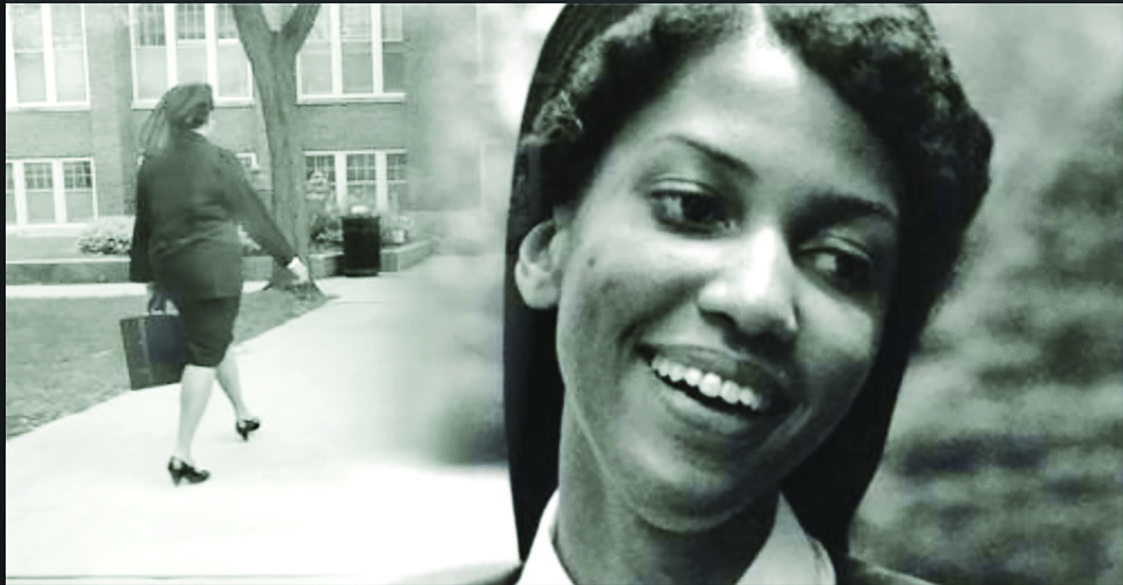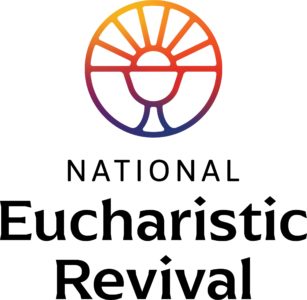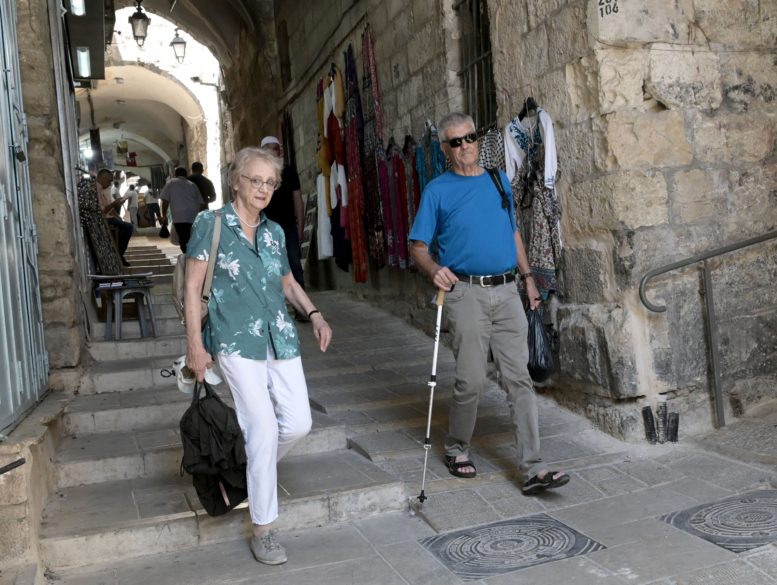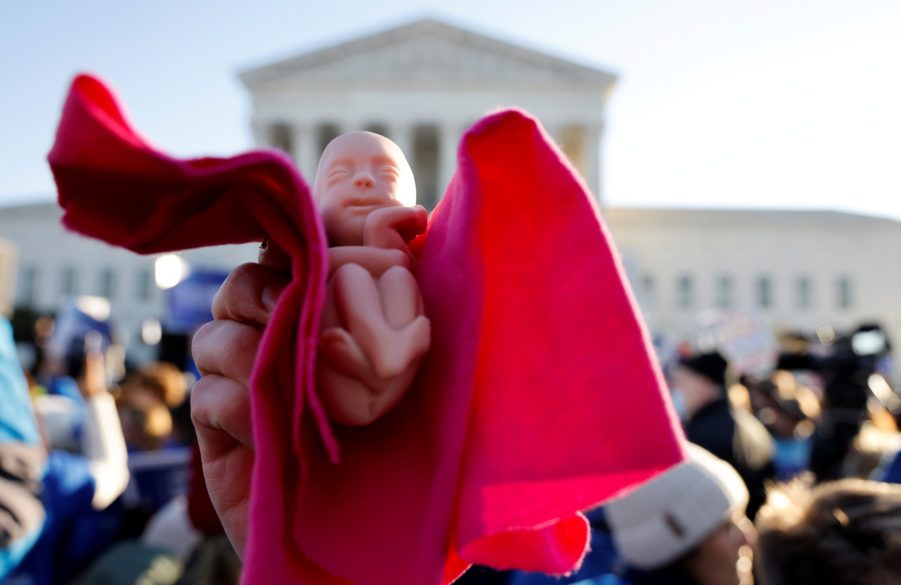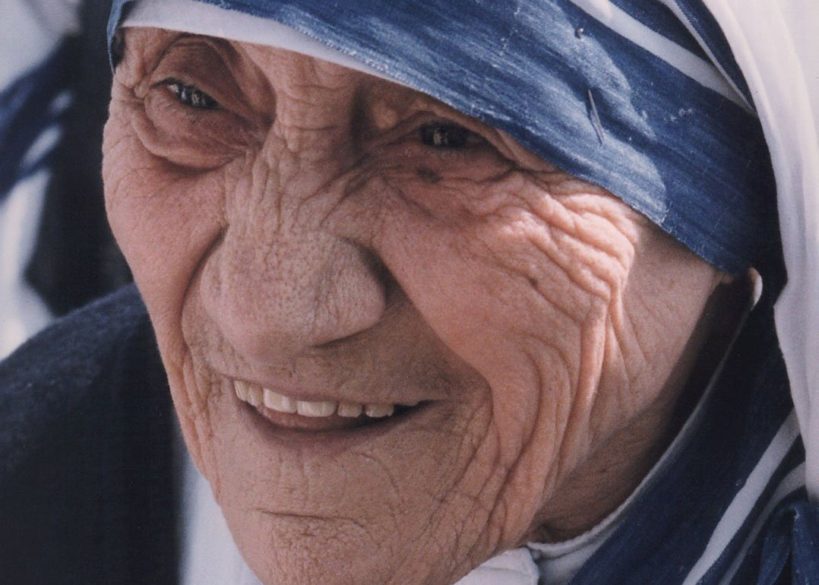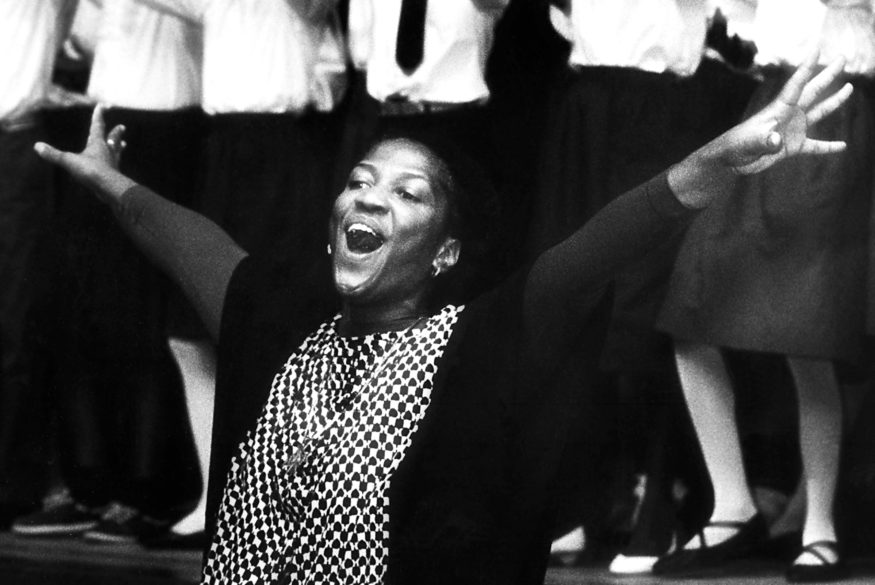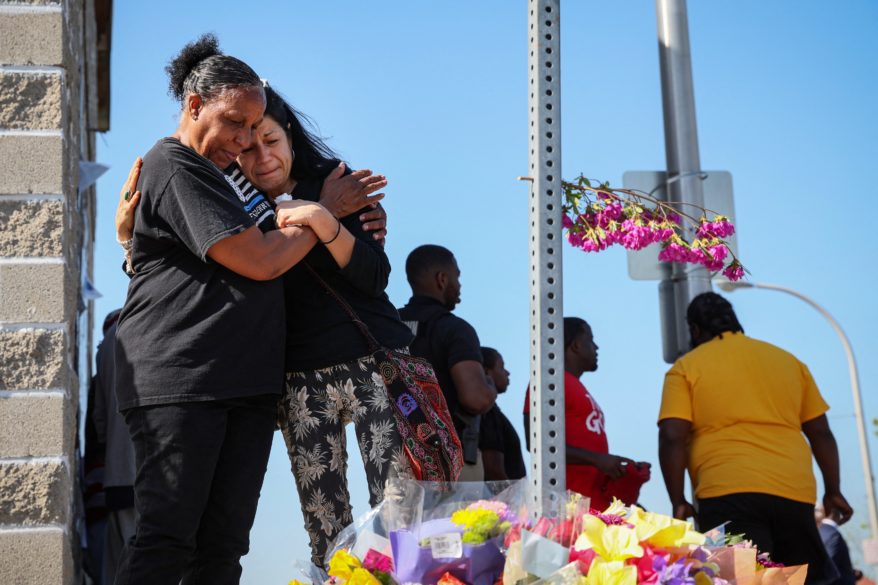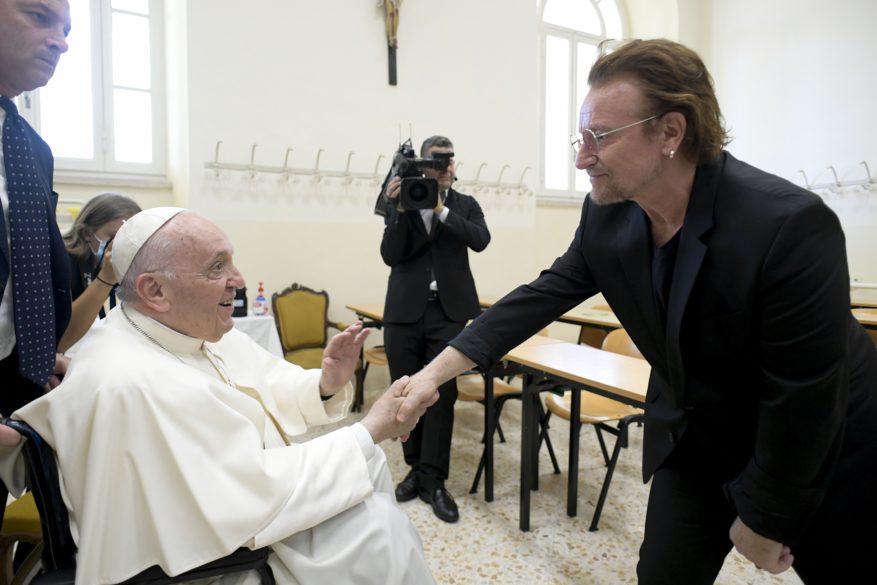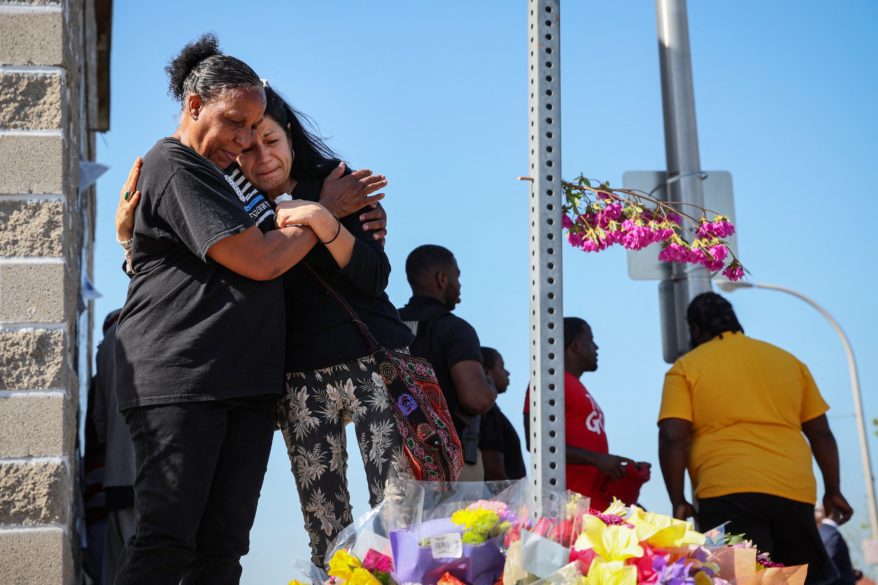NATION
NEW YORK (CNS) – New York Cardinal Timothy M. Dolan said he was surprised and inspired by Ukrainians he met when he made a brief visit to Lviv, Ukraine. “I thought I would come to Ukraine and see great depression,” he told the Religious Information Service of Ukraine. “Yes, I see sadness and pain, but I am impressed by the vitality, hope and solidarity of Ukrainians.” On May 2, the cardinal and Archbishop Mieczyslaw Mokrzycki, Latin-rite archbishop of Lviv, met with the leadership of the Ukrainian Catholic University, families of displaced Ukrainians who found refuge during the war and student volunteers. The visit was part of a trip by a New York church delegation to visit and express solidarity with Ukrainian refugees, including those in the bordering countries of Poland and Slovakia. “I see Ukrainians welcoming internally displaced persons. I see Ukrainians giving their rooms and houses to those who have lost their homes, such as here at the Ukrainian Catholic University. I see Ukrainians volunteering and working on water, medicine and food supplies,” Cardinal Dolan told RISU. “I see people who are patriots. I see Ukrainians who do not allow evil to say the last word. Life will overcome darkness. Life will defeat death. There is no depression in Ukraine, there is hope. I feel encouraged to be here in Ukraine.” The cardinal told RISU he would pass on Ukrainians’ messages of gratitude for all the help they received from Americans. Nearly 12 million Ukrainians have fled their own country or been displaced from their homes in Ukraine since the Russian military invasion of their homeland began Feb. 24, according to the United Nations.
WASHINGTON (CNS) – After the Supreme Court ruled that Boston violated the free speech rights of a Christian group to fly its flag at City Hall, another group, The Satanic Temple, has requested permission to fly a flag outside the city building. The mayor’s office of the Boston has not commented on the group’s request except to say that is has been reviewing the court’s decision and also evaluating its flag-raising program. On May 2, the Supreme Court handed down a unanimous decision in favor of the city flying the flag of a Christian group. It said the city couldn’t deny the group the right to raise its flag along with other flags reflecting the city’s diversity. “Boston’s flag-raising program does not express government speech,” wrote Justice Stephen Breyer in the court’s opinion. “As a result, the city’s refusal to let (the group) fly their flag based on its religious viewpoint violated the Free Speech Clause of the First Amendment.” “This case is so much more significant than a flag,” said Mathew Staver, founder and chairman of Liberty Counsel, a Christian legal group that represented Camp Constitution that owns the flag in question. “Boston openly discriminated against viewpoints it disfavored when it opened the flagpoles to all applicants and then excluded Christian viewpoints,” he added in a statement.
VATICAN
VATICAN CITY (CNS) – Meeting with superiors general of women’s religious orders, Pope Francis arrived in a wheelchair – the first time he has used one publicly at the Vatican. The 85-year-old pope has been experiencing severe knee pain for months and told an Italian newspaper May 3 that his doctor had advised rest and “injections” into the knee; the Vatican has not clarified whether the injections would be cortisone, hyaluronic acid or another therapy typically used to treat joint pain or deterioration. When the pope met May 5 with members of the women’s International Union of Superiors General, he arrived in a wheelchair pushed by his personal aide, Sandro Mariotti. The women superiors were holding their plenary assembly in Rome May 2-6, focusing on the theme, “Embracing Vulnerability on the Synodal Journey.” Pope Francis handed the UISG leaders his prepared text but responded to questions rather than reading the speech. According to the UISG communications office, the discussion included the war in Ukraine, the need to offer long-term help to Ukraine and Ukrainians, the importance of discernment within religious communities, colonialism and the importance of being faithful to the founding charism of one’s order without being “rigid.” One of the tweets from the office said the pope told them not to be “frozen nuns.”
WORLD
ABUJA, Nigeria (CNS) – Nigerian President Muhammadu Buhari told West African bishops he appreciated Pope Francis’ encyclical “Fratelli Tutti” for proposing some of the boldest and most radical ideas on securing human unity, peace and security. “Peace cannot reign in our region if it does not first reign in our communities and countries. Which is why I think that the theme of this summit is especially apt,” the president said in a message read by Vice President Yemi Osinbajo. The president’s message was delivered May 3 at the opening of the Reunion of Episcopal Conferences of West Africa, meeting on the theme “Fratelli Tutti: Path to Build Brotherhood and Sustainable Peace in West Africa.” Buhari said the basis of the encyclical – “the idea that fraternity and social friendship are the ways to build a better, more just and peaceful world with the commitment of all people and institutions” – was especially needed in today’s times. He said people of faith should look upon diversity as a gift, not as a cause of conflict. “By offering concrete prescriptions on building brotherhood and sustainable peace anywhere, the encyclical ‘Fratelli Tutti’ rightly takes the position that this is not merely the business of governments and political institutions; it must also be anchored on our civil societies, of which the faith communities are an important constituency.”
LIMA, Peru (CNS) – Good Shepherd Sister María Agustina Rivas Lopez, who was murdered by terrorists during Peru’s political violence, was beatified May 7 during a liturgy in the same plaza where she was shot to death in 1990. The altar, adorned with local tropical plants and flowers, was set up outside the simple, red-roofed Catholic church in La Florida, a small town in the central Amazonian Vicariate of San Ramon. A reliquary, adorned with leaves fashioned from silver and containing relics of Sister Rivas, who was known affectionately as “Sor Aguchita,” was placed on a table before the altar. The offertory gifts included a basket of bread, a coffee plant, cassava tubers, cacao pods and fruit, all crops typical of the area. With her life and her death, Sister Rivas put her faith in peace, not in violence, Bishop Gerardo Zerdin of San Ramon told Catholic News Service. She also leaves an example of an “option for the Amazon, nature, the environment,” he said, and “a great urge to serve others. with a complete absence of economic interest.” In his homily at the beatification Mass, Venezuelan Cardinal Baltazar Porras Cardozo, who represented Pope Francis at the ceremony, highlighted Sister Rivas’ humility and willingness to serve others, her preferential option for the poor and her devotion to the Blessed Mother and St. Joseph from an early age. Her martyrdom, he said, highlighted “the senselessness of violence, crime, injustice, and the evil of ideologies in which human life means nothing. The indiscriminate use of weapons leaves only death and desolation; it does not solve real problems of human coexistence.”
